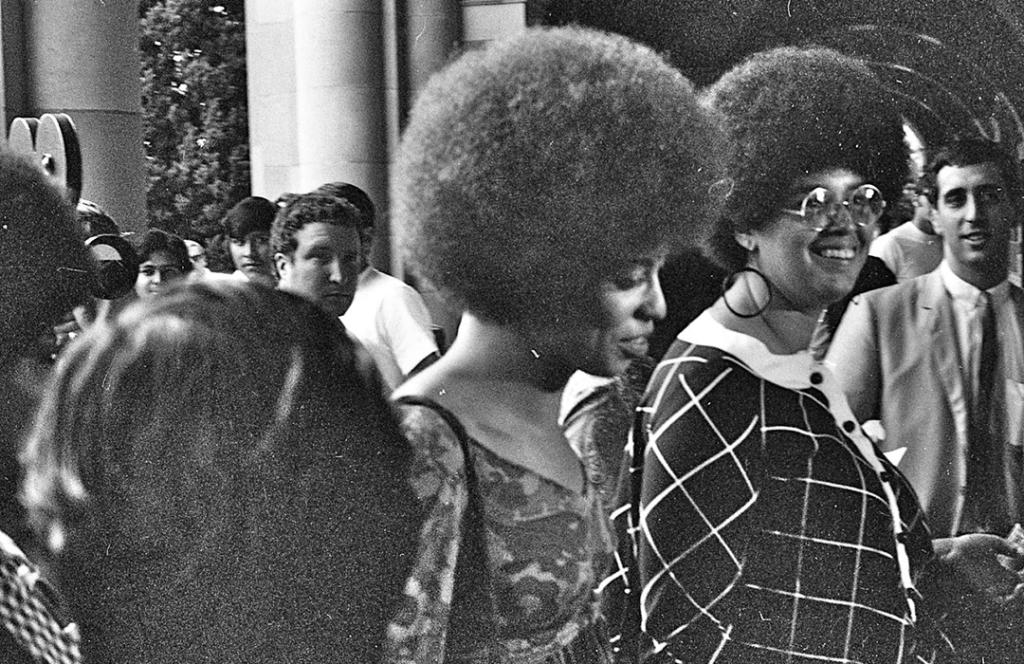
Freedom for Angela Davis
Learn about Angela Davis and the movement to free her after her arrest in the United States.

Angela Davis is best known as an educator of Black History, author, and activist for civil rights and other social justice issues. She was interviewed by Bob the Drag Queen (who won season 8 of RuPaul’s Drag Race), who asked Angela how she identifies herself and her reply was,
“I identify as a communist, abolitionist, internationalist, anti-racist, anti-capitalist, feminist, Black, queer, activist, pro-working class, revolutionary, intellectual, community-builder".

RIA Novosti archive, image #36716 / Yuriy Ivanov / CC-BY-SA 3.0
She began her life as an organizer as a teenager when she organized interracial study groups, which were then broken up by the police. In her early life as an academic, she was hired to teach at the University of California in Los Angeles, Davis was fired for her association with communism. She fought the administration in court and was reinstated.
Outside of academia, Davis had become a strong supporter of three prison inmates of Soledad Prison. These three men; John W Cluchette, Fleeta Drumgo, and George Lester Jackson were accused of killing a prison guard after several African American inmates had been killed in a fight by another guard. Many thought these prisoners were being used as scapegoats because of political work within the prison. Davis was charged with aiding the attempted escape of Jackson and served roughly 18 months in jail. A worldwide movement erupted in 1970 to free Angela Davis following her arrest in the United States.

This t-shirt with a print of a Cuban poster reads; 'Libertad Para Angela Davis', meaning 'Freedom for Angela Davis'. It features a stencil portrait of Angela Davis in support of her release after the FBI apprehended her whilst she was on the run, on 13 October 1970.
Cubans supported Angela Davis by participating in the global campaign for her freedom and welcoming her to the island several times, often with delegations from the Communist Party, beginning in 1969. The Cuban state propagated an iconography of Davis that cast her as a global signifier for both repression and international solidarity.
One of these t-shirts was purchased by the International Slavery Museum for display in the timeline in the Legacy gallery.
In 1997, Angela Davis came out as a lesbian during an interview with Out Magazine. She now works as a professor and activist who advocates for LGBTQ rights, gender equity, prison abolition, and anti-racism. She also lectures at events nationwide and was an honorary co-chair at the 2017 Women's March on Washington.
